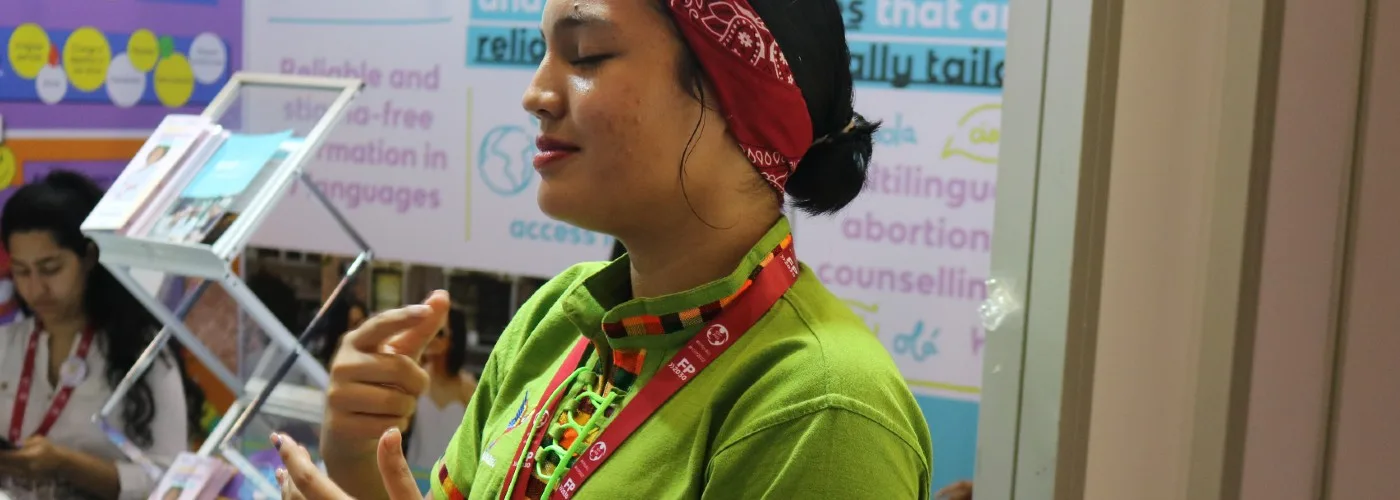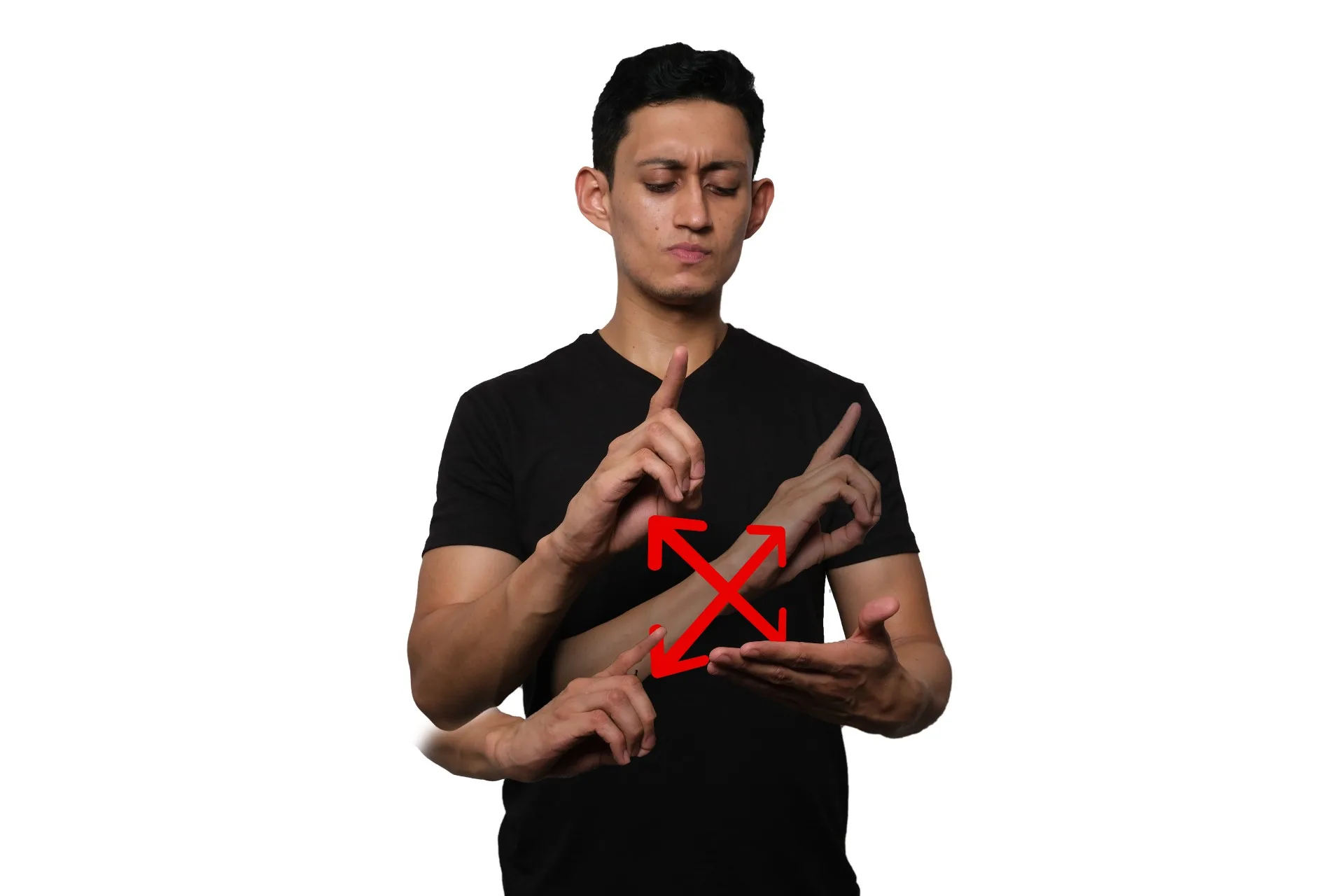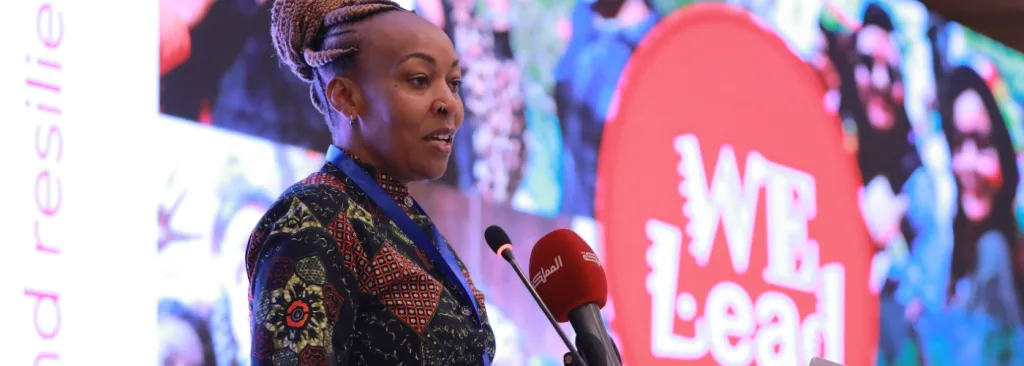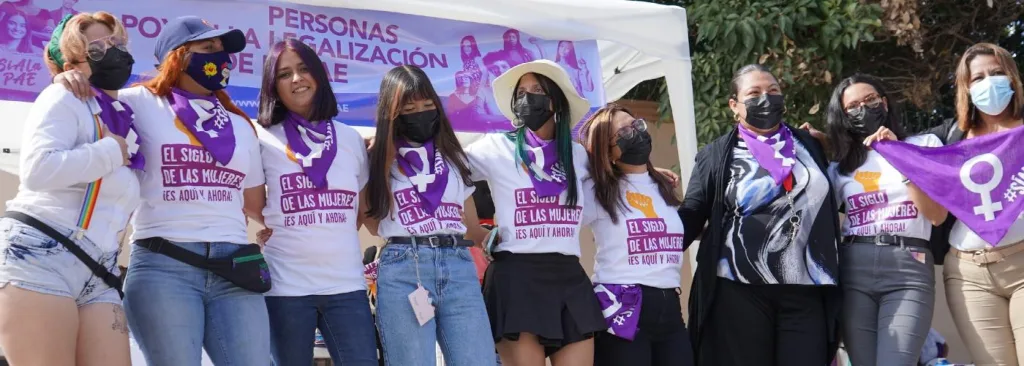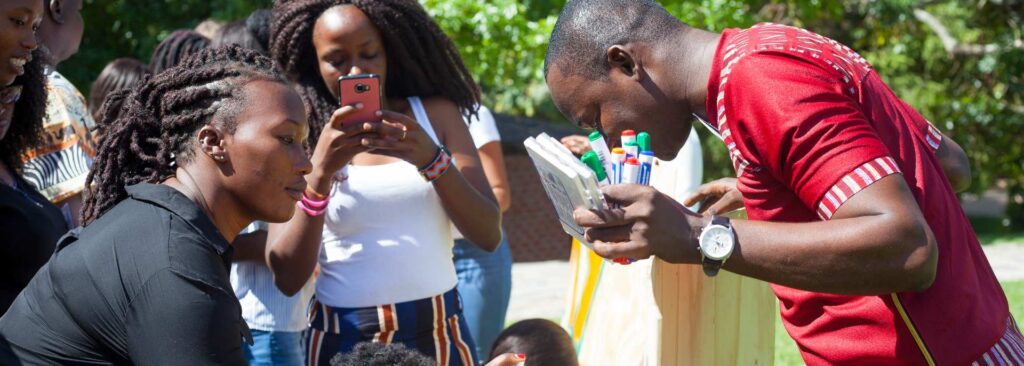What if you can’t stand up for your sexual and reproductive rights because you literally don’t have the words? For a long time there was no sign language in Honduras for terms such as menstruation, sexual violence and sexual abuse. With the support of our We Lead program, a dictionary has been developed containing 64 new signs for words related to sexuality and body parts.
For many women in Honduras who are deaf or hard of hearing, it is difficult to get the right sexual health care. Kency Lagos, president of the Association for the Deaf in Honduras, explains why. “Because they don’t have the signs to express themselves, they can’t tell health care providers exactly what they need, like for example, a certain medication or contraceptives. Reporting sexual violence is even more traumatic for them because they don’t know signs for sexual abuse, rape or assault.”
Sexual health toolkit
The 64 gestures in the new sign language dictionary let women talk to healthcare providers and other authorities about these topics and also claim their rights. The dictionary is part of a sexual health toolkit developed by our partner FENAPAPEDISH (National Federation of Parents of Persons with Disabilities of Honduras) and the Association for the Deaf. The Federation is committed to the rights of people with disabilities and wanted to inform them about their sexual health.
Work in progress
Kency thinks the new signs are a wonderful addition to the work of the Association for the Deaf. “We’ve been developing a single standardized sign language for deaf Hondurans for years. Just ten years ago we didn’t have one. Deaf people either spoke no sign language or used several different ones. This standardized language lets them communicate much better and participate in social life. Our sign language has now been officially established by law. But we’re still developing new signs – it’s a work in progress. The new dictionary is an example of this.”
All over the country
The Association for the Deaf is now teaching the new sign language to deaf people all over the country, including remote and underdeveloped areas. FENAPAPEDISH ensures that the toolkit is distributed among healthcare providers, but also interpreters, the police and the courts. “It’s also important that they learn or look up the signs to communicate with deaf women. We’re now working on getting the Ministry of Health to approve the toolkit so the government can distribute it to the 200 health services in our country,” says Rosa Raudales, the Federation’s toolkit project coordinator.
The community’s response
How has the deaf community responded to the dictionary? “People are enthusiastic and curious,” Rosa tells us. “I spoke with three young women from a remote area in Honduras. They wanted to know more about their first period and talk about it together. We used the new sign language to discuss it with them. This is also how they learned about good feminine hygiene. We left the book with them so they could learn all the other signs as well.”

